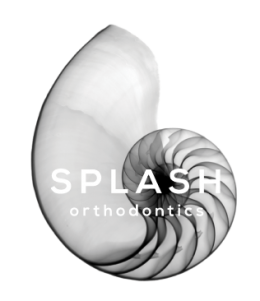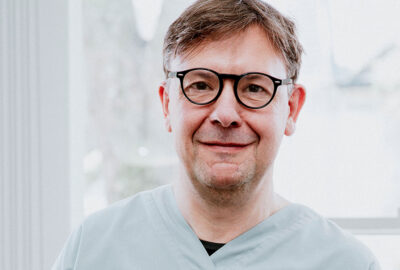Splash Orthodontics
Is smoking bad for your teeth?

 Is Smoking Bad for Your Teeth?
Is Smoking Bad for Your Teeth?
It’s now common knowledge that smoking causes various diseases, including lung cancer, chronic bronchitis, and emphysema. If you suffer from asthma it can make an asthma attack worse, sometimes even fatal. Despite all the health and safety warnings promoted throughout the years and the constant bans on advertising, people who smoke tobacco are not only aware of the risks but continue to smoke.
However, we’re not here to talk about that side of things today. Instead, what is less-talked about is the damage that smoking can have on your dental health and hygiene. Smoking constantly weakens the health of your mouth, as it restricts the blood flow to your mouth, turning it into a breeding ground for bacteria. With this comes multiple other problems, including:
- Foul breath
- Raised risk of oral cancer
- Teeth discolouration
- Increased healing time for any oral surgery
Of course, we understand that simply naming the health risks that come with smoking isn’t helpful without providing a solution. We also understand that smoking isn’t easy to quit, as nicotine is one of the most addictive substances in the world.
This is why we have written an article on how and why tobacco damages your teeth in order to educate people on the risks that come with smoking. Let’s start with the core focus: teeth.
How Does Smoking Damage Your Teeth?
Smoking hurts your teeth in a number of ways, one of the worst being how it hinders your mouth’s ability to deal with infection. This means that if your mouth does succumb to infection, it will have a tough time fighting it off because of the bacteria produced by smoking. So, essentially your mouth is left defenceless to bacteria, which will just sit there until you visit a hygienist or dentist.
If the bacteria is left untreated, it can lead to yellowing of the teeth and in severe cases, the loss of your teeth (which would require root canals). Smoking generally lowers your body’s defences, making it more prone to infection and illness. This will eventually lead to tar build-up, because your body has no way of fighting it off. This becomes a major issue because your body literally has no defence to fight off potential infection.
What this means is that the circulation in your mouth is severely affected. Additionally, the grit found in tobacco will rub teeth and eventually chip away at the enamel.
But what about smokeless tobacco? Well, that’s a tricky one. While inhaling any amount of nicotine is unhealthy, there is still some debate as to whether vaping harbours similar affects.
What Are The effects of Smoking to Your Tteeth?
Every time you inhale a cigarette, your teeth come into direct contact with the toxins laced inside it. In truth, it’s no surprise that smoking severely harms your teeth. The most common symptoms are:
- Browning of your teeth
- Gum irritation (sometimes bleeding)
- Build-up of calculus (hardened plaque)
- Dry mouth
- Enamel erosion
In severe cases these symptoms can lead to root canals, loss of teeth and severely damaged tooth enamel. While many people may simply see the above symptoms as purely cosmetic, if left untreated they can lead to severe tooth decay and end up costing thousands to repair.
Is Smoking Bad for Your Gums?
As we’ve already mentioned, smoking affects everything in your mouth. This includes your teeth, tongue, gums and general oral hygiene. The gum problems that come with smoking not only look unappealing but can become incredibly painful. Some of the symptoms you might encounter are:
- Bleeding gums
- Irritation when eating/chewing
- Receding gums
- Loose teeth
- Bad breath
While these symptoms are treatable, they are best avoided. Most dentists will suggest a number of healing techniques to combat gum and tooth irritation, including:
- Mouthwash
- Surgical intervention (bridges, implants etc)
- Deep cleaning
- Oral antibiotics
Talking to Your Dentist About Smoking
It’s not uncommon for people to be embarrassed or even lie when asked if they smoke. However, a dentist can tell if you’ve been smoking as the symptoms are blatantly obvious.
At Splash Orthodontics we know that giving up smoking is difficult, but the truth of the matter is, if you want your oral hygiene to improve, you need to give up for good. However, just because you smoke doesn’t mean you should neglect your oral hygiene habits.
Part of the reason why smokers don’t visit the dentist often is because they feel guilty and don’t want to be lectured. However, every dentist, orthodontist and oral hygienist simply wants to make sure you’re doing everything you can to keep your mouth healthy.
Keeping Your Oral Health Intact (if you’re a smoker)
If you’re a smoker looking to keep your oral hygiene in check, here are a few essential tips to act on:
Use mouthwash – if you’re a smoker, your mouth is more at risk of infection. So, using mouthwash will help fight off bacteria left in your mouth after smoking. We advise that you wash your mouth with the mouthwash for at least a minute every day to kill as much of the bacteria as possible.
Flossing – flossing is something many people forget to do. Flossing is even more important for smokers, as it helps avoid the build-up of calculus on your teeth. If you notice substantial bleeding when you floss, it may be a sign of early periodontal disease.
Regular gum check-ups – regular check-ups keep your oral health in check. If you let your dentist or orthodontist know you’re a smoker, then they’ll be able to closely monitor and watch for signs of periodontal disease and any other oral infections.
Visit Splash Orthodontics today for a free consultation
Here at Splash Orthodontics, we not only provide sound advice on all areas of dental and orthodontic hygiene, but we offer exceptional orthodontic services. We recommend you book a no-obligation, free consultation with us so you can find out how orthodontic treatment could benefit you.

 Hove
Hove 01273 203514
01273 203514


 Read more
Read more


